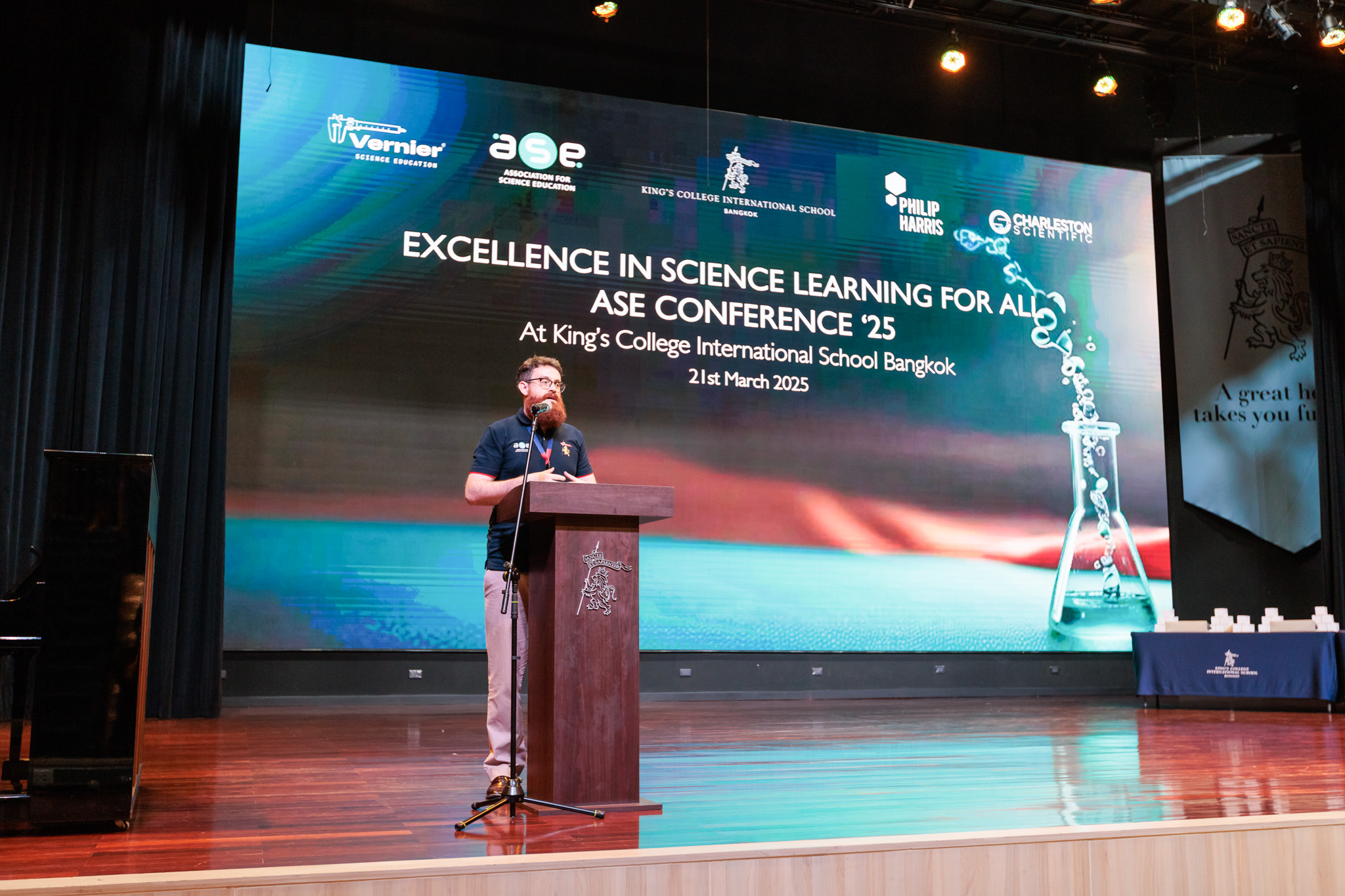Inspiring Science Education: Highlights from the ASE South East Asia Conference 2025
The ASE South East Asia Conference 2025 brought together passionate science educators from across the region for a day of inspiration, collaboration, and professional growth. Held in March, the event featured a compelling keynote address by Professor Leigh Hoath, alongside a diverse lineup of interactive workshops exploring innovative approaches to science pedagogy. Attendees left with fresh insights and practical strategies to enhance their teaching. We caught up with Will Byfield, Head of Science at Kings College International School in Bangkok, who shared his reflections on the day's highlights.

My first experience of an ASE conference was back in 2023 at the South East Asia conference. For me it was one of the everlasting CPD experiences, I came away thinking this is what CPD should be about - sharing best practice with people who understand the context in which we teach. I left knowing exactly how I was going to adjust my practice to help further support the students.

Also from a departmental point of view, it was a day where I could take my whole department, so everyone was coming back energised, ready to try and implement best practice across the department. Teachers were coming back with new ways to implement EAL in the classroom or how to lower the stakes of assessments, while lab technicians were keen to try out a new practical or develop the existing methods.

So when the opportunity came to be the host, we could not refuse. On the 21st March 2025 we welcomed 110 teachers, technicians and providers to King’s College International School Bangkok reflecting after the dust has settled the aspect that stands out to me the most is “community”. So many different teams within the school came together to make the day happen and, by far, my favourite part of the day was watching people who have dedicated their lives to education come together, share ideas and build relationships with each other. The beauty of an event like this is not just the day but the lasting supportive network it helps to build which will hopefully last far beyond. If you or your team are thinking of setting up something similar for your area, my advice is do it! Below you can find some reflections from our team:
“I found the ASE discussion group with Leigh on the future of science education really engaging, especially in hearing the range of perspectives on the UK Department for Education’s upcoming curriculum updates. Speaking with other teachers about their experiences in different settings was a valuable experience and offered meaningful insight into how science education is approached across schools. It helped me reflect on my own practice and consider new strategies, particularly around curriculum design and student engagement I could bring into my own classroom”
Sam Gohil, Chemistry Teacher
“I thoroughly enjoyed teaching adults and practising using some activities that I like to use in lessons. It was great to speak to colleagues from different schools, both to share good practice but also to recognise the challenges and struggles we face are universal and other people are going through them too! I am going to take away from the day a different outlook on inquiry based activities to begin a lesson, and the acknowledgement of the A in STEAM!”
Ben Northrop, Chemistry Teacher
“I had the opportunity to lead a workshop titled “DEI Inclusive Curricula in Science.” It brought together passionate science teachers who, like me, want every student to feel they belong in science. We explored the Mirrors, Windows, and Sliding Doors model, which helps students see themselves in science, learn about others, and actively engage with real-world scientific work. The enthusiasm in the room was clear—teachers wanted to reshape how science is taught so all students feel seen, valued, and inspired. A powerful takeaway was diverse voices strengthen science—they enhance critical thinking, deepen engagement, and make learning more meaningful. This session reinforced my belief that inclusivity isn’t just an add-on; it’s essential to the future of science education.”
Alex Foster, Physics Teacher
“I led a session focused on ensuring a smooth transition in science from early years to secondary school. While young children are naturally curious, their enthusiasm often fades as they progress-they know science matters but don’t always see themselves as scientists. Keeping them engaged means making science relevant with activities that are both accessible and challenging. We explored this further in three discussion groups: Using Assessments to Support Transition, Bridging the Curriculum – Connecting Enquiry in Primary with Rigour in Secondary, and Building a Culture of Science Identity from Early Years Onwards. Quote of the session: If we want students to see themselves as scientists, we need to show them science is already part of their world.”
Nis Dawkins, Biology Teacher

